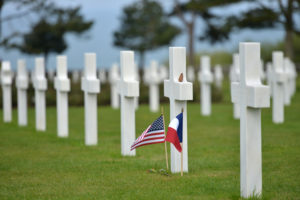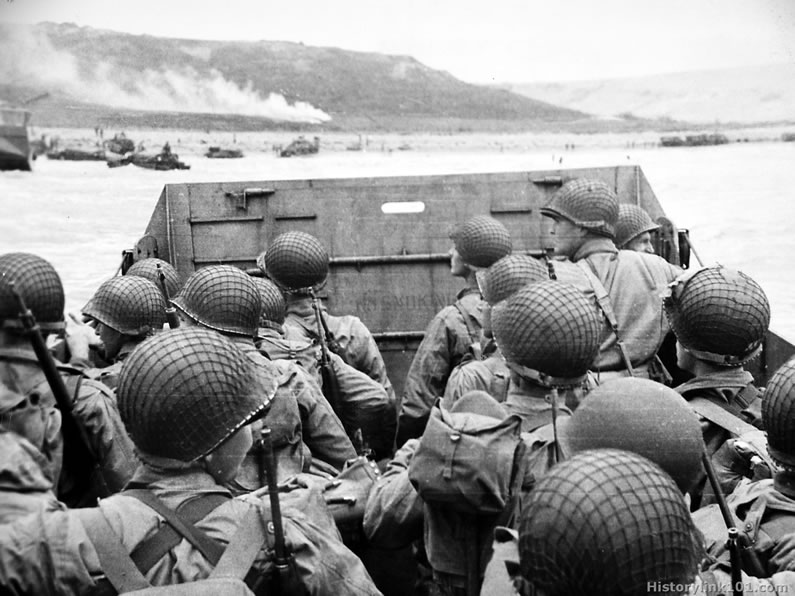It’s the day after Memorial Day, and the flags are being put away. Americans honored their dead warriors in cemeteries across the globe in somber ceremonies and seventh-inning stretches at the ballgame. But as we looked back and gratefully saluted the sacrifices of so many who gave their lives for the ideal we call America, we seem to have a tougher time recalling what they sacrificed for and how to keep that spirit and their memories alive.
In the 79 years since the end of World War II, our nation hasn’t asked much of us beyond those who’ve served in uniform and their families. Maybe that’s a luxury we’ve taken for granted for all of these decades except for every Memorial Day and Veterans Day when we pause for a moment to share our shared history.
The Heroes Of The Past Are Speaking To Us
No one doubts men and women in graves marked with crosses, stars, and crescents were fighting the evils of their generation. What seems lost, though, is they fought so future generations of Americans would also be able to tackle their costly burdens. That’s the price of a great nation.
Those who died did so in vain only when future generations stop paying it forward. And today, we have an enormous battle to wage, the climate crisis, and from the military graveyards across the world, the message is loud and clear: Uncle Sam needs you.

We need to follow the example of World War II patriotism if we are to defeat global melting.
Unity Takes Time To Achieve
I don’t want to glorify the past and create revisionist history here. We weren’t exactly quick to the fight against tyranny in World Wars I or II. Hitler’s authoritarian regime had been in power for almost nine years before America declared war against Germany, and there’s an excellent chance had Japan not attacked Pearl Harbor, we would have stayed neutral even longer.
There were thousands of American holdouts for Nazi Germany as the world went to war in 1939, just as there are thousands of global melting deniers today despite overwhelming evidence. Americans were not united in their enthusiasm for war before December 7th, 1941, any more than pinched middle-class families today are enthusiastic about paying more at the gas pump to reduce CO2 emissions.
Whether it was tribal pride or economic self-interest that blinded people to the evil growing in Central Europe in the 1930s or the danger of oceans rising today, we need to recognize the difficulty of national unity when there are 330 million points of view. There will always be leaders as well as laggards. Let historians sort out who was who after the battle. The evidence for taking action has long tipped the scales, and if we lose this generational challenge, the question of who’s to blame will be the least of our concerns.

Recycling was seen as your patriotic duty in World War II. Why aren’t we pushing the same connection to everyday Americans in the fight against global warming?
Climate Action Is Patriotic
What we now remember from World War II was the shared unity of purpose. Whether you enlisted and picked up a gun or grew your vegetables in a Victory Garden, everyone felt like they had a part to play. That sense of patriotic pride is within our grasp again.
Remember, recycling aluminum and tires for the war effort? That patriotism can be rekindled whether it’s keeping your car tuned up, taking the bus to work, insulating your home or demanding companies follow best practices in energy efficiency and supply chains.

We need to connect everyday actions to combat global warming.
Environmentalists have never been very good at flag-waving, but that’s precisely how they should construct their frame and use language around tackling global melting. You might not personally fight wildfires, but you can be a climate patriot by not burning backyard waste. If you don’t want more young Americans to die in the Middle East for oil, be patriotic and purchase an EV or at least a more fuel-efficient car and slap an American flag on your bumper next to a catchphrase, “Polluting Is Unpatriotic.”
The ideas are endless:
- Rename the local P-Patch the Patriot Patch to thank people for growing their vegetables
- Brand municipal compost bins with the double entendre “Do Your Duty!”
- Turn every transit pass holder into a “Climate Crisis Volunteer.”
- Even kids can feel involved if they are “Peddling for Polar Ice.”
The Military Is Our Last, Best Hope
“Support the troops” has become one of our favorite societal tropes, but for most people, it carries no meaning. Few people even know the American armed forces have been on the vanguard of clean energy development and deployment. Yet, because of the global implications for national security that our military has been preparing for the eventuality of global temperatures rising.
Because our armed forces are one of the few remaining institutions that retain Americans trust, use them to recruit an army of young scientists and engineers who don’t know which end of a gun is which, but who want to devote themselves to a larger cause than unbridled consumerism. We all know the next war won’t be fought with tanks and soldiers, but fighting back the seas can be patriotic, idealistic, and winnable.
Elect A Leader Who’s Up To The Challenge
Here’s hoping the years 2017-2021 are an aberration of America’s greatness. We might not always get it right, but when the chips have been down over the last 240 years, the world hasn’t seen a better society of problem solvers. Now we just need a leader who understands the historical significance of the moment and is ready to marshall the necessary resources to win.

Jay Inslee is giving the right rhetorical response to the cost of winning the climate crisis.
Since it seems like half the world is running for the Democratic nomination for President, I’m not going to forecast a winner here. There are plenty of good options to consider. I do, however, want to give special attention to Washington Governor, Jay Inslee, who has made the climate crisis core to his candidacy. “We’re the first generation to feel the effects of climate change, and the last generation who can do something about it,” he says pointedly.
While all of the candidates running have urged action on climate, Inslee has bet his entire underdog campaign on changing the trajectory of carbon emissions. Whether that makes for good electoral politics remains to be seen, but he alone is giving the right retort to naysayers who only want to talk about the cost of combatting coastal cities under water. “Dear God, man! Did anybody ask what it was going to cost to win World War II?” he said, exasperated after being asked the cost question for the hundredth time.
I have to believe if there’s an afterlife, there were thousands of dead American soldiers nodding in agreement.

An American flag waves in the breeze beside a French flag before a headstone at Normandy American Cemetery at Colleville-sur-Mer, France. The cemetery is the final resting place for 9,387 American war dead.

